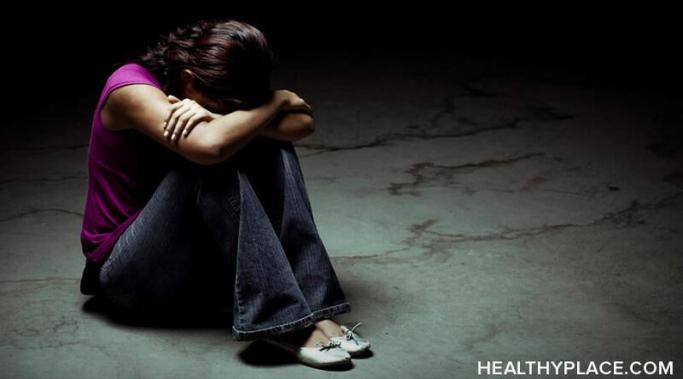Blogs
Life with borderline personality disorder means accepting the fact that some days will be better than others. Recently, I had a bad day. My therapist has suggested several different ways to distract myself from self-harming in hopes that I can put it off until the urge passes. Here is what's worked for me.
Deciding to recover from anorexia was not an easy decision. In my experience, it has been one step forward and three strides sprinting backwards. It was hard to make that decision and stick to it. And it was hard for family and friends to understand why I was so ambivalent about eating disorder recovery - after all, wasn't living with an eating disorder miserable? Why wouldn't I want to get better?
When we are in a relationship with another person, there are thing we excel at and there are things they excel at. Why not find out what you're best at and what they are, and then tag team the heck out of life?
I went to the worst doctor all time a few months ago because I was running out of my medication for my adult attention-deficit/hyperactivity disorder (ADHD) and couldn't see my regular doctor up in Baltimore. When I was brought to his office by his admin, he didn't get up from his chair to greet me and he was on his cell phone. Once off his cell phone, he said his name (forgetting to mention how lovely it was to meet me) and then had me tell him why I was there. At one point, he asked me: "Does your wife buy into your mental illness?"
Being twenty-five years old, I am smack in the middle of a time when many friends and family members are either getting engaged, married or popping out babies. While I am perfectly content with my job, boyfriend and Miniature Schnauzer, it can cause overwhelming anxiety to those who feel as if they need to rush forward with certain parts of their lives.
We tend to focus on adolescents who self-harm because, well, that’s when most seem to struggle with it. However, even though I am unaware of the statistics, self-harm continues to be an issue for many even after high school graduation. I was twenty years old when my last cut was made, but who knows how many people in their twenties are still struggling with the need to self-injure?
Doctors are experts in their field and, as such, when they give us a diagnosis of a mental health disorder like bipolar disorder, we believe them. However, doctors aren’t perfect and, unfortunately, there are times when an individual may be misdiagnosed. Some research indicates that less than half of individuals diagnosed with bipolar disorder actually meet the diagnostic criteria when assessed by a structured clinical interview.
Do you wonder if you suffer codependency? Are you dependent on someone or something else that is undependable? Are your identity, value and purpose dependent on the approval someone else? If so, you qualify as codependent. The good news is that you can lose codependence and win your independence.
Stop feeling so sensitive and learn how to prevent your emotions from ruling your mood. Prepare yourself to feel more confident by trying these tips.
Separation anxiety - the term often conjures an image of a young child in distress, loudly crying and fiercely clinging to a parent. While that’s not inaccurate, it is incomplete. Separation anxiety disorder affects not just children, but adults; in fact, it actually affects more adults than kids (7% vs. 4%). And while adults typically don’t cling to a loved one, loudly wailing, people experiencing adult separation anxiety disorder (ASAD) do feel a very similar degree of distress at the thought of separation from a loved one.
Returning from a deployment can be challenging in many ways and Vet Centers can help. Vet Centers are there to help combat veterans and their families through counseling, outreach and referrals. If you’re suffering from combat posttraumatic stress disorder (PTSD) or are experiencing other difficulties after returning from deployment, you should definitely look into these services which are always free and confidential.









